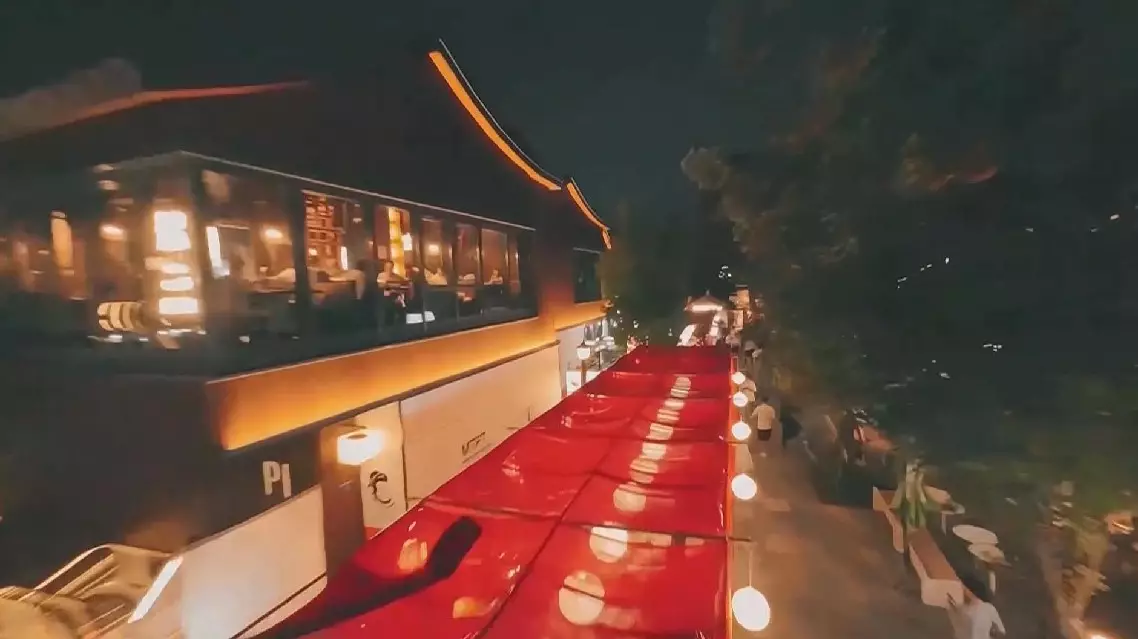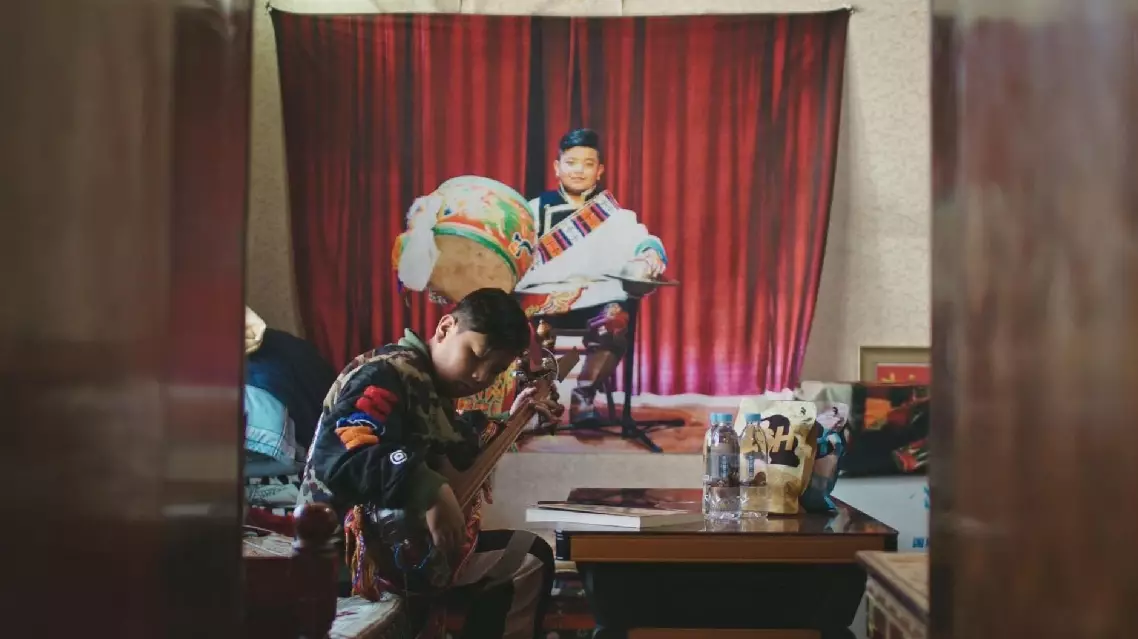Shanghai is enchanting residents and visitors with the vibe of the Mid-Autumn Festival, offering a vibrant array of culinary experiences and cultural events throughout the city.
In the Panlong Ancient Town, which dates back over 1,400 years to the Sui Dynasty (581-618), the festival was celebrated with a unique long table feast that extends from traditional indoor settings into the bustling streets and alleys.
"I think this experience is joyful. The Mid-Autumn Festival is an occasion for reunion for all. Sitting together outside with people familiar or unfamiliar, I feel it enjoyable to dine together," said a tourist.
In the Sinan Mansions complex, a food carnival has attracted significant attention, featuring over 50 catering brands from home and abroad, allowing citizens and tourists to sample a wide array of delicacies in one convenient location.
The Sinan Mansions complex, located in a quiet corner away from the hustle and bustle of downtown Shanghai, boasts 51 garden-style historical buildings that were used for dining, bars, hotels, offices and boutiques in the 1920s for the city's most luxurious residences.
"We have gathered all available featured snacks from all over the world, inviting everyone to clock in on our snacks market. For domestic and international tourists, we have introduced indigenous cuisine series that showcases the distinct flavors of Shanghai," said Sang Yuhang, marketing director of the Shanghai Bund Snacks Festival.
During the festival, Shanghai's major business districts have focused extensively on enhancing their catering and food offerings.
At a Mid-Autumn Festival market in the city's Qingpu District, many local farmers have showcased their seasonal goods. Residents and tourists visiting the market can not only enjoy classic cuisine but also explore intangible cultural heritage crafts.
"We grow a variety of fruits, such as cuiguan pears and nearly a dozen varieties of grapes. We are preparing ecological fruit gift boxes. We typically deliver at least 30 to 50 boxes every day, mainly to first- and second-tier cities," said one of the merchants.
"For the special occasion of the Mid-Autumn Festival, we have introduced fresh meat mooncakes. Now each of our stores in Shanghai sells about 2,000 of these cakes daily," said another merchant.
At the Bund, a "super full moon" decoration adorns the viewing terrace, beautifully reflecting in the Huangpu River.
"I saw the 'super moon' here today. I took some photos and struck a rather cool pose against it," said a tourist.
In addition to catering to the appetites, business districts have also presented an audio-visual feast during the Mid-Autumn Festival.
Over 90 public performances have been staged in the streets and green spaces of Panlong Ancient Town, while the Sinan Mansions complex has brought a full-sensory music party and launched a reading forum.
"Indoors, we have our traditional Southwest Reading Club and an art exhibition at the Time Zone Gallery. This event is not just a food exchange, but also allows everyone to reconnect during the Mid-Autumn Festival, away from their busy work schedules," said Fan Meichen, deputy general manager of the Sinan Mansions complex.
The Mid-Autumn Festival, celebrated on the 15th day of the eighth month on the Chinese lunar calendar, falls on Sept 17 this year.

Shanghai celebrates Mid-Autumn Festival with culinary delights and cultural festivities





















































